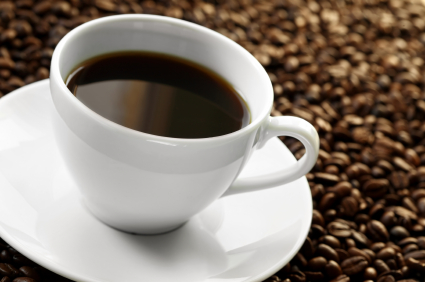Could a drink actually help prevent skin cancer? Researchers say yes.
Research from Boston’s Brigham and Women’s Hospital and Harvard Medical School shows a popular beverage lowers the risk of basal cell carcinoma by 20 percent.1
This could be huge. It’s the most common form of skin cancer diagnosed in the U.S. It affects roughly 2.8 million Americans a year.2
Of the almost 113,000 subjects in the study, 22,786 developed basal cell carcinoma. The people who consumed the most of this beverage had the lowest risk of developing this form of skin cancer.
You may already enjoy a cup every morning. We’re talking, of course, about coffee.
But wait. It wasn’t the coffee per se that offered the protection.
Researchers found a link between all coffee consumption and the risk of basal cell carcinoma. But they also found a link between intake of caffeine from other dietary sources including coffee, tea, cola (which we do not recommend), and chocolate.
“These results really suggest that it is the caffeine in coffee that is responsible for the decreased risk of basal cell carcinoma associated with increasing coffee consumption,” said study author Dr. Jiali Han.
There was no link between decaffeinated coffee and a lower skin cancer risk.
And it’s not the first time researchers have come to this conclusion.
In an earlier study of more than 90,000 women, scientists found that with each additional cup of coffee consumed there was a five percent decreased risk of skin cancer.3 That means six cups of coffee equals a 30 percent lowered risk. And again, decaf coffee had no effect.
In yet another study, researchers found caffeine kills off human cells damaged by UV rays.4
“We have found what we believe to be the mechanism by which caffeine is associated with decreased skin cancer,” said lead researcher Dr. Paul Nghiem.
Dr. Nghiem and his team found that cells damaged by UV rays self-destruct due to the halt in production of a protein called ATR. ATR helps initiate cell repair. And caffeine appears to suppress ATR. That in turn causes suicide in damaged cells.
But that doesn’t mean you should start guzzling coffee. And Dr. Nghiem agrees. Everything in moderation.
But he does believe this may offer hope in the idea of a topical application of caffeine as a form of sunscreen.
You don’t have to wait for caffeine sunscreen to start protecting yourself. For now you can still reduce your chances just by drinking your morning cup of joe. Coffee has already proven to have many other health benefits. It’s even been found to add years to your life.5 So enjoy it without guilt. You may just be protecting yourself from skin cancer.
Like this Article? Forward this article here or Share on Facebook.
References:
1 http://cancerres.aacrjournals.org/content/72/13/3282
2 http://abcnews.go.com/Health/CancerPreventionAndTreatment/caffeine-linked-lower-skin-cancer-risk/story?id=16679958
3 http://livescience.com/5340-caffeine-kill-cancer-cells.html
4 http://health.usnews.com/health-news/family-health/cancer/articles/2009/02/26/caffeine-may-offer-some-skin-cancer-protection
5 http://institutefornaturalhealing.com/2012/08/coffee-could-your-morning-cup-prolong-your-life/

